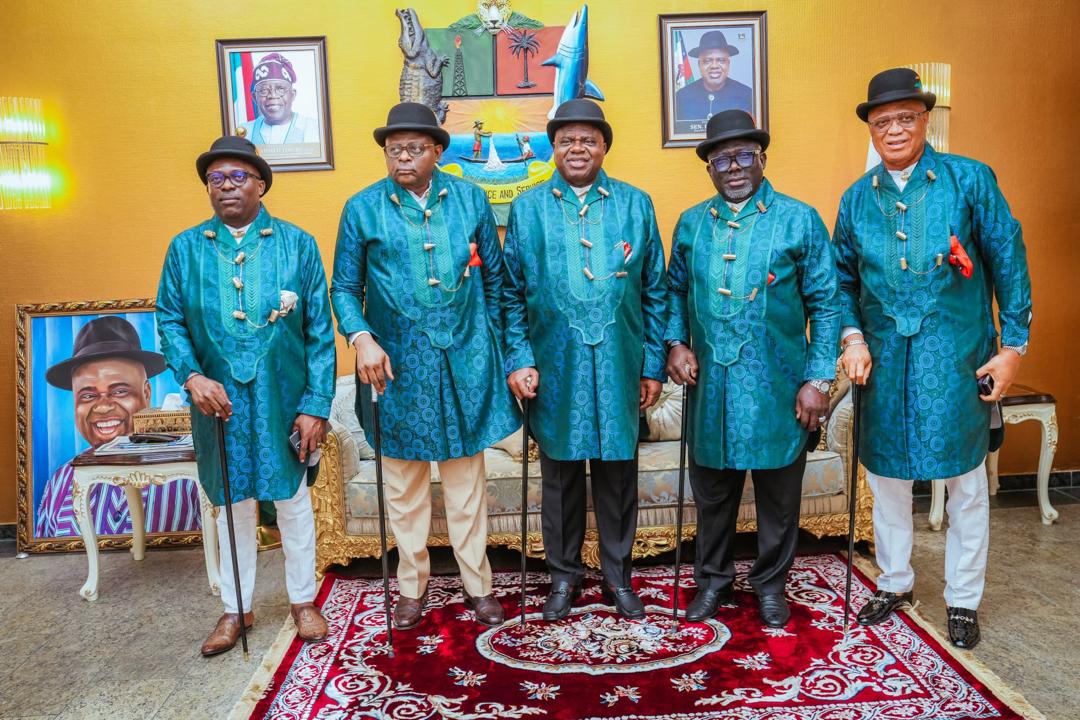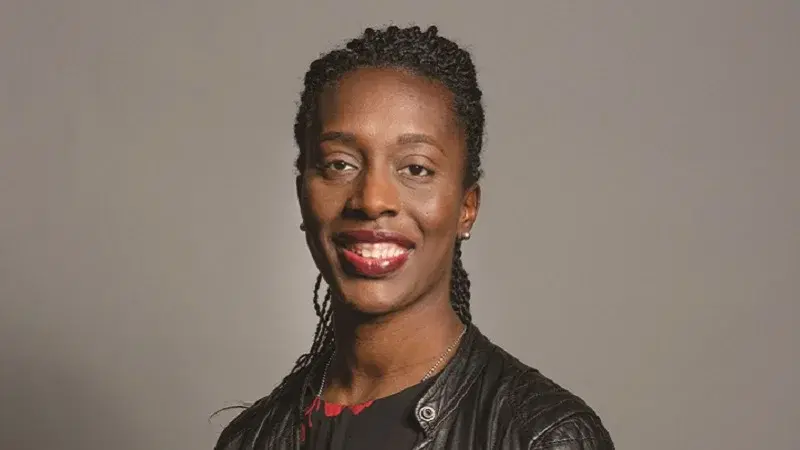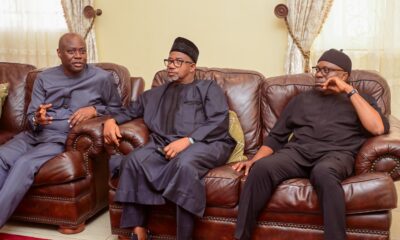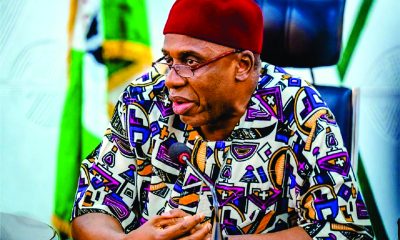News
60 Years In The Tinderbox?
As Nigeria marks its Diamond Jubilee Independence Anniversary, The Tide takes a look at various sectors of the nation’s economy. Since the outbreak of the Covid-19 pandemic, the nation’s economy has nose-dived more than ever before and masses subjected to abject poverty, hunger, deprivation and hyperinflation. The manufacturing sector seems to be the worst hit as stakeholders say they have been set back 60 years to pre-Independence level. Excerpts.
The Chairman, Manufacturers Association of Nigeria (MAN), Rivers State, Senator Adawari Michael Pepple, noted that in the past there were manufacturing concerns in almost all the major cities in their multiple numbers in the country.
Pepple lamented that those manufacturing concerns have either gone moribund or no longer in existence.
According to him, ’’Trans-Amadi used to be a bubbling hub for manufacturing, there were so many companies doing one thing or the other, but at the moment, we really do not have such a presence, all the companies have folded up, so effectively we have set ourselves back to pre-Independence level, it is unfortunate”.
He attributed the development to the lack of will on the part of government to place priority on manufacturing as a major source of employment.
The senator observed that the cost of power, which is 75 per cent of the cost of manufacturing has never been made available, saying that the situation had placed the manufacturing sector at a disadvantage.
He regretted that the future is bleak stating that Nigeria is at a loss as to what to do in post Covid-19 era, since government was still coming up with policies that were taking a way the capacity of local buyers to buy what little that was being manufactured through the increase of petrol pump price and electricity tariff.
On her part, a financial expert, Mrs Ekimini Gbole-Nwikina, said the aspiration of Nigeria using the Central Bank of Nigeria (CBN), was for Nigeria to attain financial independence.
Gbole-Nwikina recalled that prior to this time, the financial sector suffered so much as a result of failed banks due to poor governance, management style and cash based transactions.
She said these structures became the rallying point of the nation’s economy, “and the outcome was a strong and stable banking system where we now raised 25 solid banks from existing 89 banks, single digit inflation rate, debt reduction and exit from Paris Club, capital market explosion, liberation of foreign exchange market, among others”.
Gbole-Nwikina, lamented, however, that the country was yet to attain financial independence due to the many challenges that still plague the sector.
According to her, “poor governance, poor state of infrastructure, poor human capital development, low interest rate on savings and difficulty in accessing credit facility for SMEs remain the bane of Nigeria’s quest for financial independence”.
On the security architecture of the nation since 1960 when Nigeria gained independence, a peace building practitioner in Rivers State, Mr Cosmas Ndinee, noted that Nigeria has been challenged security wise, saying that a child born at independence would already be a grandparent by now and that in it is self goes with a lot of responsibility.
Ndinee, who is also the coordinator, Search for Common Ground, a non-governmental organisation in Rivers State, stated that Nigeria had not taken on much of this responsibility, particularly as it concerns corruption, pointing out that, “whenever corruption is so strong in a nation, you never can expect anything fine because the players would not handle things in the desired manner”.
He maintained that corruption remain the bane of peace, security and development in the nation stressing, “it is this corruption that has arisen to series of insurgencies, militancy, affecting the security architecture of the country”.
Sadly, he said, this development has resulted in the exit of investors and liquidation of some businesses, thereby creating unemployment, loss of jobs with an increased level of hardship and poverty in the country.
On the way forward, he said security was pivotal in the development of any nation, which he stated must be addressed by calling to the drawing table all the players especially those who feel excluded from the scheme of things and bring the nation to a peaceful position free from violence.
The Chairman of Inter-Party Advisory Council (IPAC), Nsirim Emmanuel Chima said Nigeria is yet to have true Independence and Democratic system that will work in accordance with our cultures.
According to him, Nigeria is still under neo- colonialism of the Western countries, where the nation system is being detected and determined by the influence of the Western countries.
“This Nigeria as country is yet to be a true independence nation, as Independence country, we are still going to abroad for Medical trip, we are also going to abroad for quality education, we are blessed with natural resources and human resources yet we still importing fuels, we supply electricity to other countries, yet Nigeria always have black out every moment, at 60th since Independence our refineries are not in perfect order.
“Nigeria at 60 is a failure and major factors responsible are corruption and bad leadership, if only we will be honest to ourselves and shunned corruption in our system we will move the nation to an enviable height”, Chima said.
Also speaking, former Auditor General in Rivers State and former State House of Assembly member, Chief Bob Frederick, said the only way Nigeria will achieved it desire development is to erased corruption from the governing system.
He said though Nigeria is a negotiated country that needs restructuring but that restructuring with corruption ravaging almost every sector, cannot move Nigeria to any level.
Those who also blamed corruption and bad leadership for the woes of the country were the Special Adviser to Rivers State Governor on NDDC, Barrister Erastus Awortu, and a Medical Doctor and National Chairman of Medical and Health Workers Association of Nigeria, Dr Biobelemoye J. Josiah.
Awortu said Nigeria need practical rule of law and not academic one.
Awortu, who is also a lawyer, said Nigeria must move higher, if the government at the centre would shun party politics and tackle corruption irrespective of party affiliation.
On his part, Josiah said the entire nation system needs to be restructuring, arguing that true democracy is the solution to the nation’s problems.
An Electrical Engineer, Mr Godwin Ekanem said, “Nigeria is a blessed country, and nobody in Nigeria should be suffering because everyone is in a good position to make wealth. Tourists should be happy to come and invest in the country and not the reverse. Those countries our big men and leaders travel to for pleasures and medical treatments are not as rich as our country Nigeria.
He said this Africans are not coming to invest, rather to tie the embezzled fund and keep in the bank there: Too bad for our leaders and for our dear country.”
A retired public servant, Mr Olali Seigha said, “This country can never be better so long as there is nepotism, tribalism, among others.
“This country is so divided in a way that there is no way that we can improve, except there is a division.
“If we can divide without a war, then its better, so the northerners and Southerners go their separate ways that is the only thing that can improve this country, otherwise there is no way somebody is 60 years like our country, Nigeria and is still very backward”.
Lecturer and author, Dr. Priye Elechi Amadi said, Nigeria needs to create new values.
“We are always learning and where we are now is a total conglomeration of what we have been” she said.
She challenged leaders to begin to set right priorities and such could make the country come out from the rot it’s now.
“So, we should be growing at this point with technology wise by improving our digital skills and move with the world”, she added.
Amadi, who is also the chairperson of the Reading Association of Nigeria, expressed optimism about Nigeria’s future, “Yes, we are 60 good and fine, and life can begin at 60. I am not losing hope in this country.”
For former Caretaker Committee Chairman of Opobo/Nkoro Local Government Area, Sir Boma Brown, the creation of Nigeria was the beginning of the woes for the people.
He submitted that Nigeria was a creation of British commercial and Colonial interest, recalling that even Sir James Roberston, the last Governor General of Nigeria admitted that the South and North had no similarities.
In the light of this, Brown called for deconstruction and restructuring, “If we restructure then we can move ahead.”
The Opobo-born politician maintained that unless there is a total reorganisation of the polity, Nigeria will remain stagnant.
“Our current political ideology is defective because it’s driven by ethnic and religious bias making it difficult to grow.”
Brown also recommended the need to see all groups as equal, “a system that views other ethnic group as superior to others cannot move forward.”
An activist and social critic, Mr. Ethelbert Agam, has stated that at 60, Nigeria is no longer a child, because a man at that age would have done who is expected of him or be regarded as a failure.
Agam averred that the county has come a long way and could have performed better than she does at the moment.
He observed that the country has fared too badly though, but blamed our snail-pace progress on most of nation’s greedy leaders (past and present) who cornered the wealth of the county to themselves.
According to him, “We need a social analysis to ascertain how we manage to fine ourselves in this unjustifiable socio-economic malady. We need to ask ourselves some questions.”
Also speaking, a trader at Watt market, Calabar, Mrs. Jennet Azu, said that Nigeria has come of age, but quickly note our politician dampened the spirit of Nigerians with their failed promises.
“We do not want anything from them rather than good road network to enable us carry our products from rural area to urban cities, may be water and electricity.
“They will come with their sweet talk during campaigns, as soon as they get into office, they forget the masses,” she lamented.
On his part, a road side mechanic, Mr. Dominic Etim, noted that Nigeria could have been better than it is now if some of our leaders have human feelings and stop the capital flight, but rather use our God given wealth to develop the country for the overall benefit of all.
The Coordinator, Western Zone, National Association of Government Approved Freight Forwarders (NAGAFF), Dr Fred Ajuzie: “Government need to support customs to drive the revenue profile. We want to see a situation whereby scanners are available to boost trade facilitation and encourage import and export.
“Lack of scanners has affected their operations. The maritime sector since the nation’s Independence. Firstly, port concession has failed because when Nigerian ports Authority was in charge of the ports, you will agree with me that things were a bit okay.
“However, since the ports were concessions to private investors things have been static”.
Market woman, Rose Afolabi said, “The government should show us human face. We are suffering so much in this country. The cost of living is high. Our government should provide us with good roads, electricity, and drinking water, nothing we need than that. If they like, let them pocket our money”.
By: Tonye Nria-Dappa, Enoch Epelle, John Bibor, Susan Serekara-Nwikhana, Kevin Nengia (Port Harcourt), Friday Nwagbara (Calabar), Canice Amadi (Enugu), Nkpemenyie Mcdominic (Lagos) & Nneka Amaechi-Nnadi (Abuja).
News
Let’s Approach Regional Development Issues Differently – Fubara …As S’South Govs Host Fubara To 50th Birthday Celebration

Rivers State Governor, Sir Siminalayi Fubara, has sued for a change in the current approach adopted by South South Governors in their pursuit to achieve holistic regional development and economic prosperity.
The governor insisted on de-emphasis in vested individuals’ political interests while looking at the bigger picture of achieving enduring regional integration that will strengthen unity of purpose to change the trajectory of development in the region.
Fubara made the appeal during the meeting of Governors of South-South States, under the auspices of BRACED Commission, at the Bayelsa State Government House in Yanagoa on Tuesday.
This was contained in a statement by the Chief Press Secretary to the Governor, Nelson Chukwudi.
BRACED is an acronym for Bayelsa, Rivers, Akwa Ibom, Cross River, Edo and Delta.
He said: “I want to appeal that if we have to succeed in this drive, we need to keep our political differences aside and understand that the struggle, as at today, is for posterity, for the development of our region.
“It is really sad that in Niger Delta that is the economic base of this country, the construction of a road that you tagged ‘East-West Road’ could be an issue, that we need to beg, protest, and complain to get it fixed. I don’t think it is proper.”
Governor Fubara stated that it is not that the federal authorities do not understand that Niger Delta needs the road but quickly added that they have seen that even the people of the region do not take themselves seriously.
The governor said the moment Niger Delta people stopped playing to the gallery, and place value on themselves, outsiders will have no option than to accord the region and its people due regard.
Fubara said: “On my part, I want to say this: This is not the first time we are meeting. For me, I followed the course of the region meeting in a forum that we tagged “BRACED Commission.”
“BRACED Commission is also one of the bodies that was constituted at that time to support and work out development strategies for this region. But what I am seeing today is just limiting this meeting to only BRACED COMMISSION.
“We need to widen the scope where other leaders of the region should be part of the discussion of the development of the region, and I think this is the direction that will help the region.”
Reading the Communique of the meeting, the new Chairman of the Forum of Governors of South-South States, and Governor of Bayelsa State, Senator Douye Diri, said they support the Federal Government Tax Reform Bills, and urged President Bola Tinubu to extend the Value Added Tax (VAT) sharing percentages to oil and gas derivation.
He stated the Forum’s request to the Federal Government to urge relevant stakeholders and agencies to extend remediation of polluted environment ongoing in Ogoni land to other impacted communities and States in the region.
Governor Diri also said that the Forum resolved to establish a structural regional security network to enhance safety and security, foster stable Niger Delta region conducive for economic growth and prosperity.
Highlight of the event was the hosting of Governor Fubara to a surprise 50th Birthday celebration by the Governors of South-South States at the Government House in Yenagoa.
News
Fubara Lauds Tinubu For Setting Up Education Load Fund … Vows To Ensure Rivers Benefit Maximally From Scheme

The Rivers State Government has applauded President Ahmed Bola Tinubu for conceiving the idea of setting up the Nigeria Education Loan Fund (NELFUND) which has opened up opportunities for youths to acquire tertiary education irrespective of their financial status.
Rivers State Governor, Sir Siminalayi Fubara, gave the commendation while playing host to a delegation from NELFUND who came on an advocacy visit to the Government House in Port Harcourt on Tuesday.
Represented by his deputy, Prof. Ngozi Nma Odu, Governor Fubara said in developed countries it is common for people to go through school with loans which they sometimes pay all throughout their lives, noting that “for us, it is more accessible and more friendly because you would be required to pay back the loan two years after your National Youth Service.
“It is a win-win situation; it is a situation where the youths in Nigeria should not say because my parents are poor or passed away I cannot improve on my educational growth. This offers them a golden opportunity and I am glad you came for this advocacy.”
The governor urged NELFUND to intensify its advocacy to let the people know how they can benefit from it, adding that it is more important when talking about vocational institutions.
“If you look at the developed countries it is people that went to the vocational schools that make so much money, because it is pricey to get somebody to do anything, we need to instil this into our people, our youths, because people sometimes tend to look down on people that went to vocational schools, it should not be,” he said.
Fubara expressed delight with the NELFUND programme and assured that the State Government would do whatever it can to ensure Rivers State benefits maximally from the scheme.
In his remarks, the Managing Director and Chief Executive of NELFUND, Dr. Akintunde Sawyer, informed the governor that they were in Rivers State to seek the support of the State Government towards the loan, stressing that President Tinubu has directed them to ensure no Nigerian student who has the ability and desire to get educated at tertiary level is denied the opportunity due to lack of funding.
He explained that the scheme provides interest-free loans to students who apply, adding that these loans are not repayable until two years after their Youth Service when they must have gotten a job.
News
UK Appoints British-Nigerian As Trade Envoy To Nigeria

A British-Nigerian politician, Florence Eshalomi, has been appointed as the United Kingdom’s trade envoy to Nigeria.
Her appointment makes Eshalomi the second Nigerian to hold the position.
Confirming her appointment on X on Tuesday, she wrote: “It is an honour to have been appointed as the United Kingdom’s Trade Envoy to Nigeria.
“I’m looking forward to building on my close ties with Nigeria to promote a strong and flourishing economic relationship between our two great nations.
“I am looking forward to strengthening the UK’s relationship with Nigeria to explore shared growth and opportunities for both countries.”
Announcing the appointment in a statement on Tuesday, Jonathan Reynolds, the UK’s Business and Trade Secretary, said the decision was aimed at attracting investment into the UK and boosting economic growth.
“I’ve launched a new team of trade envoys who will use their experience, expertise, and knowledge to unlock new markets around the world for British businesses, attract investment into the UK, and ultimately drive economic growth,” Reynolds said.
Eshalomi, 44, is an MP representing the Vauxhall and Camberwell Green constituency.
She holds a Bachelor of Arts (Hons) in Political and International Studies with Law from Middlesex University.
-

 Niger Delta3 days ago
Niger Delta3 days agoNEITI Eyes Energy Sufficiency Through PH, Warri Refineries
-

 Politics19 hours ago
Politics19 hours agoPDP Governors’ Forum Pays Condolence Visit To Makinde …Over Demise Of Elder Brother
-
Business3 days ago
Diri Pushes For Africa’s Sub-nationals’ Partnership On Economy … As Bayelsa, Angolan Province Synergizes On Fisheries, Agric
-

 Politics21 hours ago
Politics21 hours agoHow I Would’ve Handled Subsidy Removal As President – Amaechi
-
Nation17 hours ago
NGO Honours Individuals, Groups For Outstanding Contributions To Humanity
-
Niger Delta3 days ago
Edo Governorship Election: Tribunal Relocates To Abuja
-
Politics20 hours ago
Stop Lying About Your Wealth, Odinkalu Knocks Buhari
-
Business17 hours ago
CBN Releases FX Code To Mitigate Financial Risks

